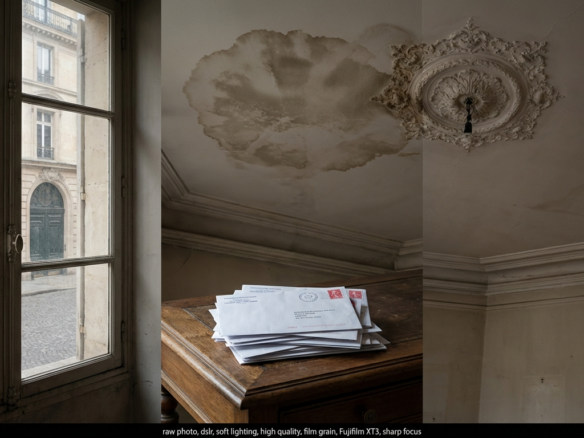Building your dream home in Europe presents an incredible opportunity to create a personalized living space while potentially benefiting from the continent’s diverse property markets. With 2025 bringing updated regulations and new opportunities across EU member states, understanding the complete process from land acquisition to construction completion has never been more crucial for prospective homeowners.
Get 50% OFF!
Subscribe to our newsletter and enjoy a 50% discount on all listing packages, no strings attached!

The European property landscape offers unique advantages, from historic charm in rural France to modern sustainability requirements in Germany, each country presenting distinct opportunities and challenges. This comprehensive guide will walk you through every essential step of buying land and constructing your ideal home across European markets, ensuring you make informed decisions throughout your property journey.
Research European Property Laws and Regulations
Understanding property ownership laws forms the foundation of any successful European land purchase and construction project. Each EU country maintains distinct legal frameworks governing foreign ownership, with some nations like Switzerland and Denmark imposing restrictions on non-resident purchases, while others such as Portugal and Spain welcome international buyers with open arms. Property rights, inheritance laws, and construction regulations vary significantly between jurisdictions, making thorough research essential before committing to any location.
Building codes and planning permissions represent another critical layer of European property law that directly impacts your construction timeline and budget. Countries like Germany enforce strict energy efficiency standards that may require additional insulation and heating systems, while Mediterranean nations focus heavily on earthquake resistance and fire prevention measures. Environmental protection laws, archaeological site considerations, and UNESCO heritage zone restrictions can significantly affect both land availability and construction parameters, particularly in historically significant regions across Italy, Greece, and Central European countries.
Find the Perfect Plot for Your Dream Home
Location selection requires balancing personal preferences with practical considerations such as infrastructure access, local amenities, and future development plans. Rural plots often provide more space and privacy at lower costs, but may lack essential utilities like high-speed internet, reliable electricity, or proper sewage systems that require expensive installations. Urban and suburban locations typically offer better connectivity and services, though land prices reflect these advantages with significantly higher per-square-meter costs, particularly in popular destinations like Tuscany, Provence, or the Austrian Alps.
Evaluating plot characteristics involves examining soil conditions, drainage patterns, slope gradients, and potential environmental hazards that could impact construction feasibility and costs. Professional soil surveys reveal foundation requirements and potential issues like clay expansion or rocky substrates that influence building techniques and expenses. Additionally, researching local zoning regulations, maximum building heights, setback requirements, and architectural style restrictions ensures your dream home design aligns with municipal guidelines and prevents costly redesigns during the approval process.
Navigate Financing Options Across EU Countries
European mortgage markets offer diverse financing solutions for international buyers, though qualification criteria and interest rates vary considerably between countries and lenders. Local banks typically provide the most competitive rates for residents, while international banks and specialized expat lenders serve non-resident buyers with tailored products that account for foreign income sources and credit histories. Many European lenders require substantial down payments ranging from 20% to 40% for land purchases, with construction loans following different approval processes that release funds in stages as building milestones are completed.
Construction financing presents unique challenges compared to traditional property purchases, as lenders evaluate both land value and projected construction costs when determining loan amounts. Progressive payment structures align fund releases with construction phases, requiring detailed project timelines and contractor agreements before loan approval. Some countries offer government-backed loans or subsidies for energy-efficient construction, sustainable building materials, or rural development projects, providing additional financing avenues that can significantly reduce overall project costs when properly researched and applied.
Hire Local Architects and Construction Teams
Selecting qualified local professionals ensures your project meets all regulatory requirements while benefiting from regional expertise and established supplier relationships. Licensed architects familiar with local building codes, climate considerations, and architectural traditions can design homes that blend seamlessly with regional aesthetics while incorporating modern amenities and efficiency standards. Verify professional credentials, review previous projects, and confirm insurance coverage before engaging any architect, as design errors or regulatory oversights can result in expensive corrections or project delays.
Construction team selection requires evaluating contractor licenses, financial stability, and project portfolio quality to ensure reliable project completion within agreed timeframes and budgets. Request detailed quotes from multiple contractors, including material specifications, labor costs, and completion schedules, while checking references from recent clients about work quality and professionalism. Establish clear contracts outlining payment schedules, change order procedures, and quality standards, with penalty clauses for delays and bonus incentives for early completion to maintain project momentum and cost control.
Complete Legal Process and Start Building
Legal documentation requires meticulous attention to detail, beginning with property title verification through local land registry offices to confirm clear ownership and identify any existing liens, easements, or restrictions. Engage qualified local attorneys specializing in property law to review all contracts, ensure proper documentation, and guide you through the specific legal requirements of your chosen country. Purchase agreements should include detailed property descriptions, boundary surveys, and contingency clauses for obtaining necessary permits, while construction contracts must specify materials, timelines, and quality standards with clear dispute resolution procedures.
Building permit acquisition involves submitting detailed architectural plans, engineering reports, and environmental impact assessments to local planning authorities for approval before construction can legally commence. The permit process timeline varies significantly between jurisdictions, ranging from several weeks in streamlined systems to many months in bureaucratic regions, making early application submission crucial for project scheduling. Once permits are secured and construction begins, regular inspections ensure compliance with approved plans and building codes, while maintaining detailed records of all expenses, permits, and certifications creates essential documentation for future property transfers or refinancing opportunities.
Successfully buying land and building a house in Europe during 2025 requires careful planning, thorough research, and professional guidance throughout every phase of the process. From understanding complex property laws to managing construction timelines, each step presents unique challenges and opportunities that can significantly impact your project’s success and final costs.
The investment in proper preparation, qualified professionals, and legal compliance pays dividends through smoother project execution, reduced unexpected expenses, and a finished home that meets all your expectations while complying with local regulations. With patience, diligence, and the right team of experts, your European dream home can become a rewarding reality that provides years of enjoyment and potential financial appreciation.





Join The Discussion